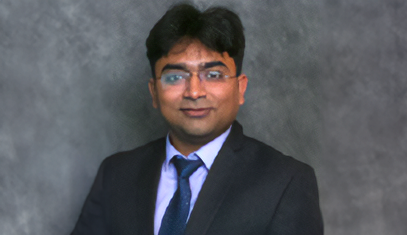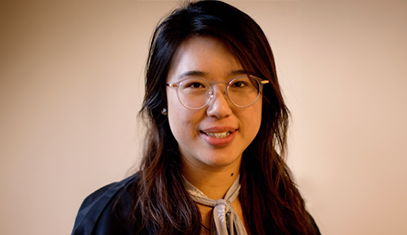Epilepsy Fellowship
The McGaw Medical Center of Northwestern University offers an ACGME-accredited Epilepsy fellowship with four positions available each year. Two positions are reserved for adult fellows and two positions are reserved for pediatric fellows. Fellows are eligible for the American Board of Psychiatry & Neurology (ABPN) boards in epilepsy.
The fellowship offers comprehensive training in EEG, both in the inpatient and outpatient settings. The program includes advanced training in surgical epilepsy, with exposure to both stereo EEG and subdural grid evaluations as well as device interpretation and management. There is additional training in intraoperative electrocorticography and functional mapping. In addition, fellows are trained in multiple epilepsy subspecialties, including but not limited to managing women with epilepsy, autoimmune epilepsy, and tumor-related epilepsy.
The majority of our fellows complete one year in Clinical Neurophysiology/EEG fellowship in addition to the one year Epilepsy fellowship.
See the Department of Pediatrics site for information on the Pediatric Epilepsy Fellowship.
Education
The goal of the program is to prepare the fellow for independent practice as an academic epileptologist. Formal teaching is integrated with the daily informal teaching on all rotations. Didactics focus on EEG and medication and surgical management of epilepsy. Over the course of the fellowship, fellows have graduated responsibility in overseeing the epilepsy monitoring unit, monitoring continuous EEG (both scalp and invasive), developing surgical implantation schemes, and proposing surgical plans. Direct supervision of rotating residents occurs both in the epilepsy monitoring unit as well as during EEG rotations.
In addition, the fellow has a continuity clinic supervised by an epilepsy attending. The outpatient clinic offers leading-edge medical and surgical treatment options, as well as access to specialized research and clinical trials.
Adult fellows rotate at the affiliated Ann & Robert H. Lurie Children’s Hospital of Chicago for 1-2 months to increase pediatric exposure, while pediatric epilepsy fellows rotate at Northwestern Memorial Hospital to increase exposure to adult epilepsy.
Northwestern Memorial Hospital is the highest ranked hospital in the Chicago metropolitan area. The Departments of Neurology and Neurological Surgery are ranked fifth in the nation.
Research
The fellowship offers ample opportunity in clinical research in several areas of epilepsy with mentors who are world-renowned experts in their field. Project ideas are discussed at a research meeting in the beginning of the year and a timeline is devised to ensure successful completion of the project by the end of the year. A full-time clinical research associate is available to support the regulatory process, data collection, analysis and the publication process.
Fellows are expected to complete at least one research project during their training. They are also expected to present their data at a national meeting and autor either and original manuscript, review article, or book chapter during their fellowship.
Requirements
The ACGME-accredited training in Epilepsy must be preceded by the completion of a residency program in neurology or child neurology accredited in the United States or Canada.
Residents are selected for Epilepsy fellowship from eligible applicants based upon their preparedness, ability, aptitude, academic credentials, communication skills and personal qualities. No discrimination is made based upon sex, race, age, religion, color, national origin, disability or veteran status. Approximately half of the eligible applicants are invited for personal interviews.
How to Apply
The Epilepsy Fellowship program participates in the AAMC’s Electronic Residency Application Service (ERAS) and the National Resident Matching Program (NRMP) Match. The program will begin accepting applications for the 2026-2027 academic year in December 2024. Interviews will take place between January and March. For information on submitting an application, visit the ERAS for Applicants website.
Required documents include:
- CV
- Personal statement
- Three letters of recommendation
- A copy of current temporary medical license
- Copies of USMLE scores
Meet our Current Fellows
Contact Us
Elizabeth E Gerard, MD
Clinical Neurophysiology Fellowship Director
epilepsy-neurophysiology, education
Erica Nielsen
Fellowship Coordinator
epilepsy-neurophysiology, ms-neuro-immunology, neuro-infectious-disease-global-health, neuromuscular-disease, neuro-oncology, sleep-medicine
Physician-Scientist Training & Resources
We offer a wide range of resources, mentorship opportunities and formal training programs to help our residents and fellows excel as physician-scientists. Explore all of the resources and hear from housestaff who are making research a major part of their career development plans.
VISIT THE STARZL ACADEMY SITE
